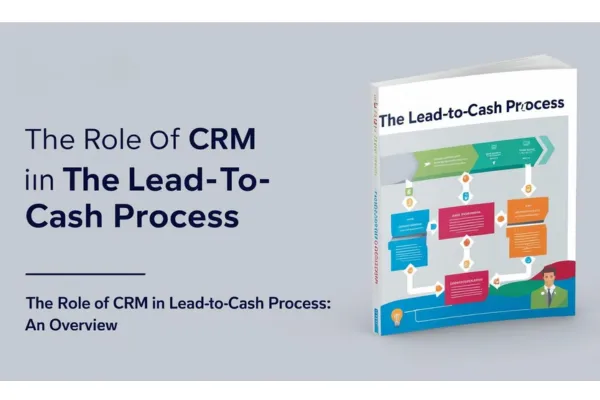
The Role of CRM in the Lead-To-Cash Process: An Overview
Welcome to the latest edition of our newsletter, where we'll be exploring the role of Customer Relationship Management (CRM) in the Lead-to-Cash process. We'll cover everything from what CRM is, to its key functionalities and benefits to businesses, as well as why learning a CRM like Salesforce can give a competitive advantage in the job market.
What is CRM?
At its core, CRM is a system that helps businesses manage their interactions with customers and potential customers. It's a way of organizing customer data and using it to improve relationships with those customers. CRM software can store and track customer interactions across various channels, such as email, phone, chat and social media.
The Role of CRM in the Lead-to-Cash Process
The Lead-to-Cash process refers to the entire process of converting a lead into a paying customer. It encompasses everything from lead generation and nurturing to sales and invoicing. CRM plays a critical role in this process by providing a centralized system for tracking and managing customer data at every stage.
At the lead generation stage, CRM can help businesses capture and store leads' contact information, along with any other relevant data, such as their industry or job title. This information can then be used to target those leads with relevant marketing and sales content.
During the sales process, CRM can help sales teams track their interactions with customers, including phone calls, chats, emails, and meetings. It can also provide valuable insights into customers' behavior and preferences, allowing sales teams to personalize their approach and increase their chances of closing deals.
After the sale is complete, CRM can help businesses manage their invoicing and payment processes. Businesses can improve their cash flow and reduce the risk of late payments by automating these processes and providing real-time visibility into payment statuses.
Key Functionalities of CRM
Some of the key functionalities of CRM software include:
Contact Management: Storing and organizing customer data, such as contact information and interaction history
Sales Management: Managing the sales pipeline, tracking deals, and providing insights into sales performance
Marketing Automation: Automating marketing campaigns and tracking their effectiveness
Customer Service Management: Managing customer inquiries and complaints, providing self-service options, and tracking customer satisfaction
Analytics and Reporting: Providing real-time insights into sales, marketing, and customer service performance
Benefits to Businesses
Implementing a CRM system can provide a wide range of benefits to businesses, including:
Improved Customer Experience: By providing personalized interactions and relevant content, businesses can improve their customers' overall experience
Increased Sales: By tracking customer interactions and providing valuable insights, businesses can increase their chances of closing deals
Streamlined Processes: Automating routine tasks and providing real-time visibility into customer data can streamline processes and improve efficiency
Better Collaboration: By providing a centralized system for customer data, CRM can improve collaboration and communication across departments
Improved Forecasting: By providing real-time insights into sales performance, businesses can better forecast their revenue and plan for the future
Advantages of Learning a CRM Like Salesforce
As more businesses adopt CRM systems, there is a growing demand for professionals who are skilled in using them as well as consultants who are skilled in implementing/tailoring them to the specific needs of the businesses. Learning a CRM like Salesforce can provide a competitive advantage in the job market, as it's one of the most widely used CRM systems globally. By becoming proficient in Salesforce, one is able to:
Demonstrate their ability to manage customer data effectively
Improve their chances of getting hired in sales, marketing, or customer service roles
Improve their chances of getting hired into consulting roles such as administrators and implementation consultants
Professionals who possess Salesforce skills can earn higher salaries. Therefore, acquiring these skills can increase their earning potential
Access a vast community of professionals and resources for ongoing learning and development
In conclusion, CRM plays a critical role in the Lead-to-Cash process, providing businesses with a centralized system for managing customer data and improving relationships with customers. By implementing a CRM system, businesses can improve their customer experience, increase sales, streamline processes, and improve collaboration and forecasting. Learning a CRM like Salesforce can provide individuals with a competitive advantage in the job market, allowing them to demonstrate their ability to manage customer data effectively and increase their earning potential. As businesses continue to adopt CRM systems, it's very essential for professionals to stay ahead of the curve and develop the skills needed to succeed in today's data-driven business landscape.
